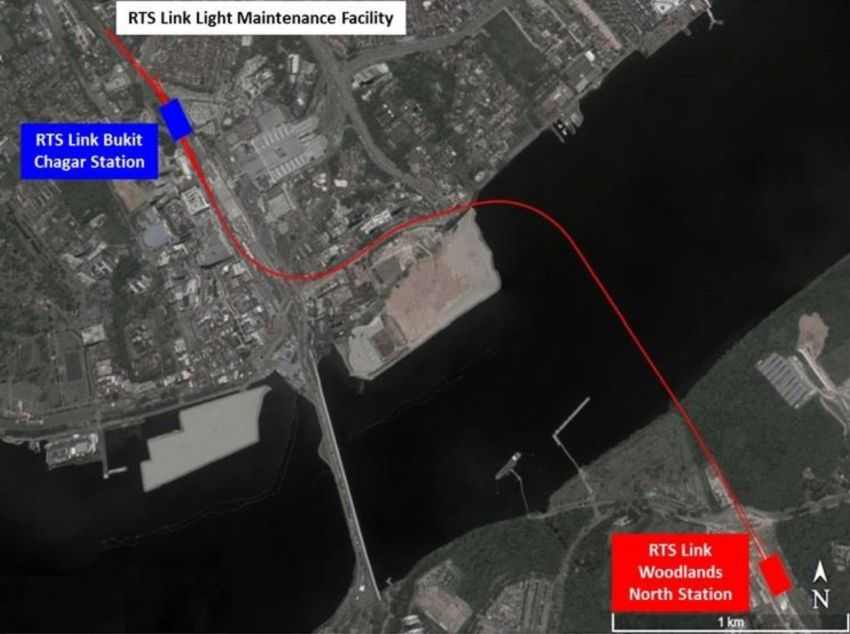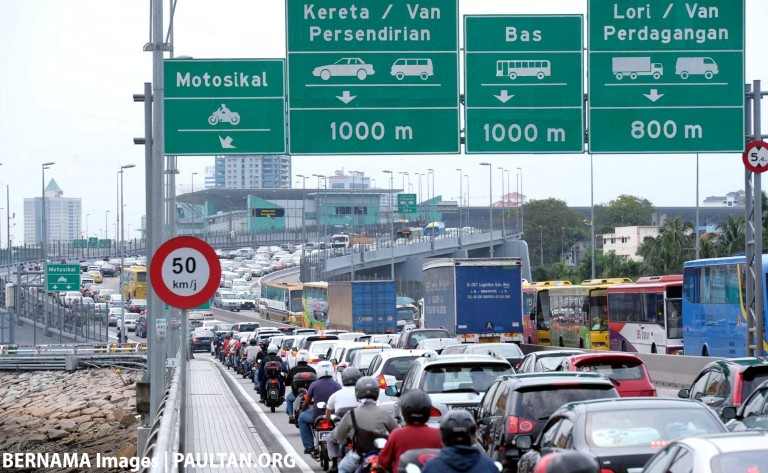The rail line is expected to be ready in December 2026, and an estimated 150,000 people, which is half the number of people shuttling between JB and SG, are expected to use the RTS daily, said MRT Corp CEO Datuk Mohd Zarif Hashim.
“The RTS consists of four coaches. It can carry at least 250 people in one coach at one time – some 10,000 people an hour. Based on the number of people crossing the border previously, before its closure, we expect at least 150,000 people to use it daily,” he said, reported by The Star.

“It will take only about five minutes to travel between Bukit Chagar station in Johor Bahru and Woodlands North station in Singapore. The frequency of the train will be 3.6 to six minutes, depending on whether it is during peak hour,” he added.
Mohd Zarif also said that the RTS will operate from 6am to midnight, and operation hours can be extended based on demand. 2026 is quite far down the road, and no info on fares have been shared. However, “we will ensure the ticket price is affordable,” the MRT Corp chief said.
In July, prime minister Tan Sri Muhyiddin Yassin and his Singapore counterpart Lee Hsien Loong met at the Causeway for a signing ceremony that marked the official resumption of the RTS Link project. Launched in 2018, RTS construction was scheduled to start in 2019 and slated for completion by December 2024. However, it was suspended in April 2019 at Malaysia’s request as the Pakatan Harapan administration reviewed all big projects.

In its current form, the RTS project differs from the original plan. While the 10k passengers per hour capacity remains, the line will no longer leverage the Thomson-East Coast (TEL) MRT Line in Singapore. Instead, it will be a standalone LRT system. Also, instead of the TEL’s Mandai Depot, a new depot will be built in Wadi Hana, JB.
It will continue to feature co-location of CIQ facilities, so that passengers undergo clearance only once, at their point of departure. Each government has separately appointed an infrastructure company to fund, build, own, maintain and renew the civil infrastructure and stations in its territory up to the international boundary.
According to Mohd Zarif, Malaysia’s portion of the RTS cost of RM3.7 billion will include construction of the Bukit Chagar station and four-storey CIQ complex, the Wadi Hana depot, and viaducts through the JB city centre and over the Straits of Johor to the Malaysia-Singapore border. The Bukit Chagar hub will be a transit-oriented development with mixed property development and duty-free shops.
There will be an RTS Link station facade design competition, an idea mooted by Johor’s Sultan Ibrahim ibni Almarhum Sultan Iskandar.
Reference links: https://paultan.org/2020/11/23/construction-of-jb-singapore-rapid-transit-system-rts-link-starts-completion-expected-in-dec-2026
 When Covid pandemic is the biggest barrier for international Real Estate, Real Estate market in Vietnam is still active
When Covid pandemic is the biggest barrier for international Real Estate, Real Estate market in Vietnam is still active